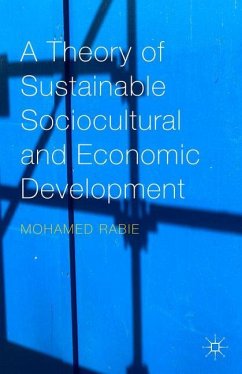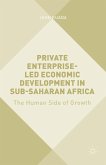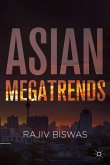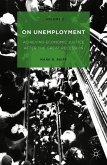Why do some countries' economies struggle to develop, even when they are the focus of so much research and international funding? While recognizing that the obstacles facing poor nations are many and complex, Rabie proposes that the roots of most obstacles are sociocultural; thus, sociocultural transformation and economic restructuring can only be successful when treated as interconnected, mutually beneficial objectives. A Theory of Sustainable Sociocultural and Economic Development outlines an innovative model capable of identifying the major obstacles hindering poor nations' development in general, and the sociocultural and political obstacles in particular, placing them in their proper historical contexts, and addressing them comprehensively.
"Rabie argues that unleashing the true potential of education holds the key to the emancipation of all societies. A charismatic educator and a luminary inspiration to generations of students in his own right, Rabie's insights as to how to enable the flourishing of young minds through education constitutes one of his most significant and memorable contributions in this excellent book." - Hilla Dayan, Professor, Amsterdam University College, Netherlands
"This book provides an uncompromising analysis of the underlying forces that shape our lives and the challenges that all of us - in a rapidly changing, globalized world - face. Its approach to societal development - focusing on culture - is a provocative and much-needed alternative to the neoliberal consensus." - Philip Leech, Senior Fellow, Centre on Governance, University of Ottawa, Canada
"Rabie reframes sustainable development as societal development that begins with culture rather than with economy. Looking beyondthe dominant views in current development literature, he points out that no plan can lead to the economic development of a country without a similar plan which aims to transform culture. Sociocultural transformation has not been given due recognition in existing development theories. This book fills this gap." - Rohana Ulluwishewa, Author of Spirituality and Sustainable Development
"This book provides an uncompromising analysis of the underlying forces that shape our lives and the challenges that all of us - in a rapidly changing, globalized world - face. Its approach to societal development - focusing on culture - is a provocative and much-needed alternative to the neoliberal consensus." - Philip Leech, Senior Fellow, Centre on Governance, University of Ottawa, Canada
"Rabie reframes sustainable development as societal development that begins with culture rather than with economy. Looking beyondthe dominant views in current development literature, he points out that no plan can lead to the economic development of a country without a similar plan which aims to transform culture. Sociocultural transformation has not been given due recognition in existing development theories. This book fills this gap." - Rohana Ulluwishewa, Author of Spirituality and Sustainable Development








